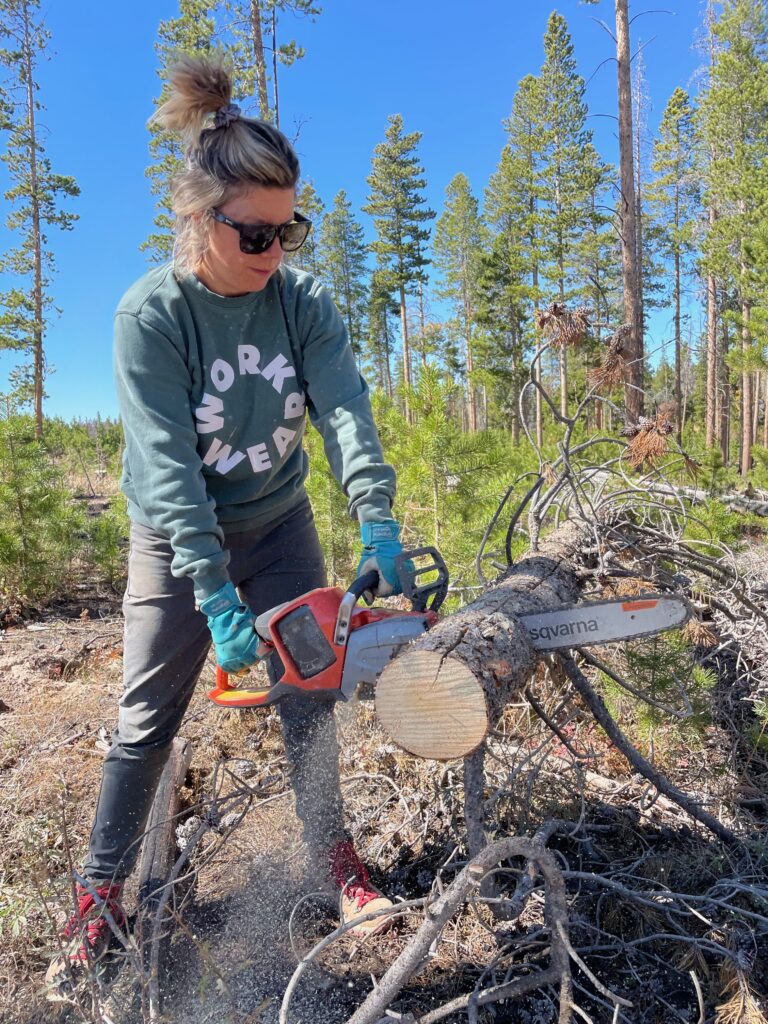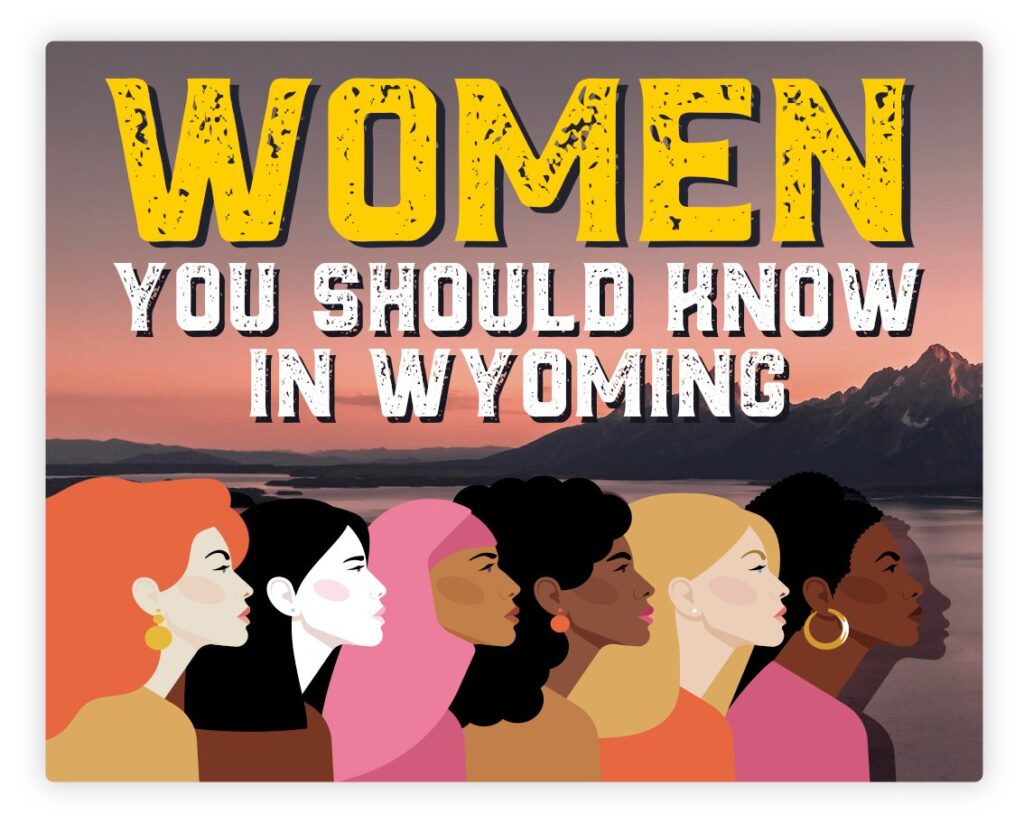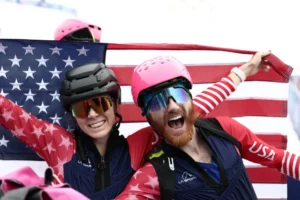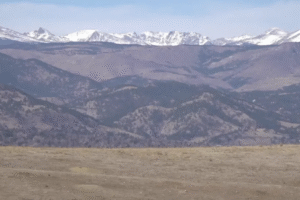WOMEN YOU SHOULD KNOW IN WYOMING: Laramie Entrepreneur Designs Work Clothes that Work for Women
Emily Parsons founded Glow WorkWear to give women the right fit
- Published In: Other News & Features
- Last Updated: Nov 08, 2023


By Elizabeth Sampson
It’s hard to get very far when you are hiking up your pants instead of hiking up a trail— and even harder to swing an ax when your waistband feels sharper than your blade. Unfortunately, for many women who work outdoors, workwear seems to be designed with someone else’s body in mind: men’s.
No one knows that struggle better than Emily Parsons. When she worked seasonally for the U.S. Forest Service during and after college — first on a trail crew near Anchorage and then on a fire crew in Wyoming — she found herself in a uniform that didn’t fit.
During long and difficult days performing manual labor, Parsons started asking herself questions — “Why isn’t my uniform made for me?” and “How come I can’t have a pair of pants that fit me?”— that ultimately led her to manufacture durable, yet comfortable clothing for women.
Today, Parsons, 42, is CEO of Glow WorkWear, an online retailer offering an array of clothes designed by a woman for women.

An early entrepreneur
Parsons grew up in a small dairy farming town in Vermont near the Canadian border; her parents owned a construction company and a maple sugaring operation. She helped with the family business and tried her hand at making lotions, body oils and shampoo, with the hope of selling them.
“As a kid who lives in rural Vermont, where do you actually sell it? This was pre-internet,” she said, laughing. “It was fun, but maybe a services business would have been a better start.”
At the University of Montana, Parsons played rugby, and her teammates, who worked seasonally for the U.S. Forest Service, encouraged her to apply for a summer job. She felt lucky to be hired on by a trail crew in Alaska and had fun during her three-month stint.
But one thing that wasn’t great: the way the uniforms fit.
“I was assigned a uniform, which is a really welcoming thing, so you know what to wear to work,” Parsons said. “But once I was fitted — I use the term loosely — I felt l like a dolly that put on whatever random clothes were laying around. I recognized quickly that the pants simply were unisex, and there were no women’s fits.”
It perplexed her that the uniforms didn’t reflect the changing shape of the workforce.
Despite the poor fit, Parsons liked the uniform’s lightweight, fire-resistant nylon that dried quickly and made it easy to hike and work. It was then Parsons started contemplating the idea of designing pants in comfortable fabric that actually fit women’s bodies.
The dilemma of ill-fitting pants followed Parsons from her early career with the forest service in Bridger-Teton National Forest to TigerTree, a tree-care business she now co-owns with her husband Jeff. In 2018, Parsons started investing time and money into designing pants that would be work-friendly, but still look professional when she met with clients. She also wanted them to be anything but unisex.
“Women wearing men’s or unisex-sized clothing is an old way of doing business when no women were present to have their opinions and bodies available for feedback on designs, fabrics or pockets,” she said.
The pants also needed to fit women of all sizes and shapes, rather than fit only some.
Parsons collaborated with Jackson designer Teri Davis and Jerry Gundersen, of Seattle, who created patterns and samples. Together, they fabricated pants with a shorter rise than men’s and useful pockets using material that hugs and moves with the body.
“… our dimensions are a cross between a women’s jean and a women’s yoga pant,” Parsons said. “We do our best to sew the two worlds together.”

In 2020, the trio produced an initial run of 300 pants. When they sold out after a year, Parsons expanded the line to include additional pant styles, outerwear and tops. The clothes were first manufactured in New Jersey, but when the plant closed, Parsons moved production to the Dominican Republic.
Parsons hired one employee who hems pants, but otherwise, she calls herself the “main doer” of the company. She recently started forging connections with her customers—whether that is through social media or face-to-face.
“I want to make relatable, feel-good content that hits a nerve with women to build a feeling of community and understanding,” Parsons said. “I’ve had employees or social media agencies do our social media, and I have come to realize I need to walk the path to develop it. I need to learn how to get it right before I can hand it off.”
Parsons’ friend Nicki Nabb praised Parsons for her vision and business acumen.
“She has this no-nonsense ability to see the goal and keep moving forward towards it,” Nabb said. “[She can] focus on the big picture and [has the] ability to make tough decisions to reach this goal. And all while keeping a cool exterior, sense of humor and class.”
Today, Parsons splits her time between Glow WorkWear and TigerTree. She and Jeff also make time to camp, hike and ski with their 11-year-old son and 9-year-old daughter.
As Glow WorkWear marks its fourth year in business, Parsons is considering marketing her clothing as useful for more than just workwear. Growth is slow and steady, and she views her initial $25,000 investment as the equivalent of paying for a design degree.
“I try to remind myself that we are getting there slowly,” Parsons said. “I run into people physically or online who tell me all the great things they are doing in their Glow pants…I remind myself, if we are building a durable product that doesn’t need to be replaced as often, it might feel slow to build a company.”
Parsons encourages women to take the leap into entrepreneurship: “If you have a spark in you, and you feel like you have a good idea, you just need to trust yourself—it is a good idea.”













